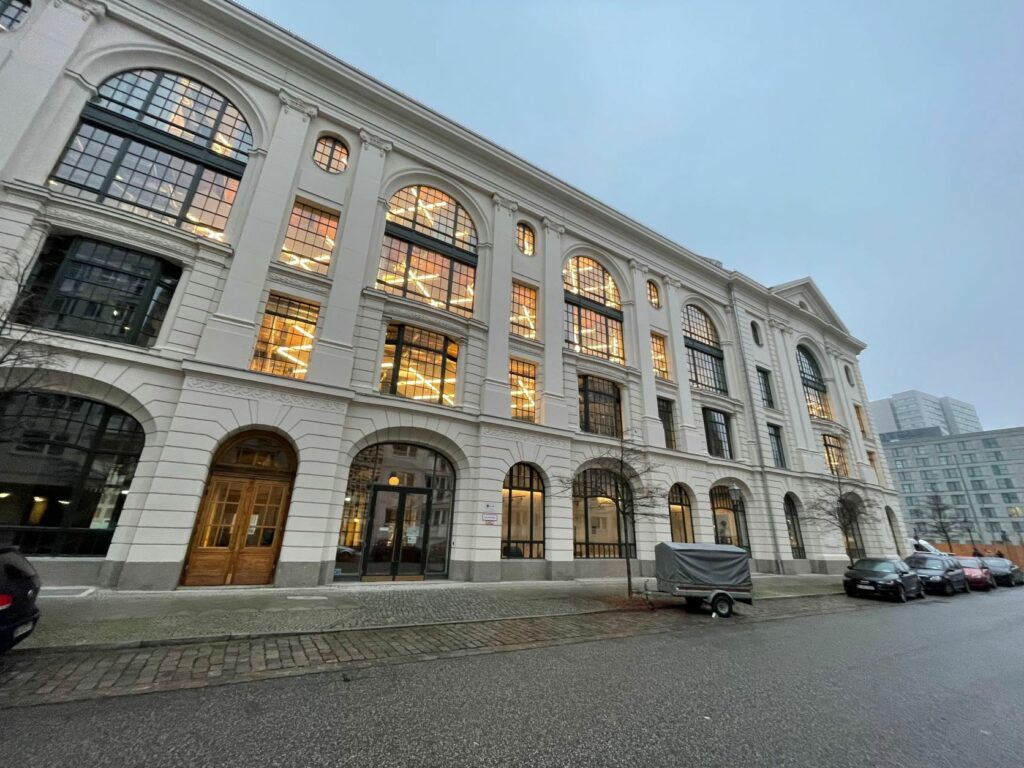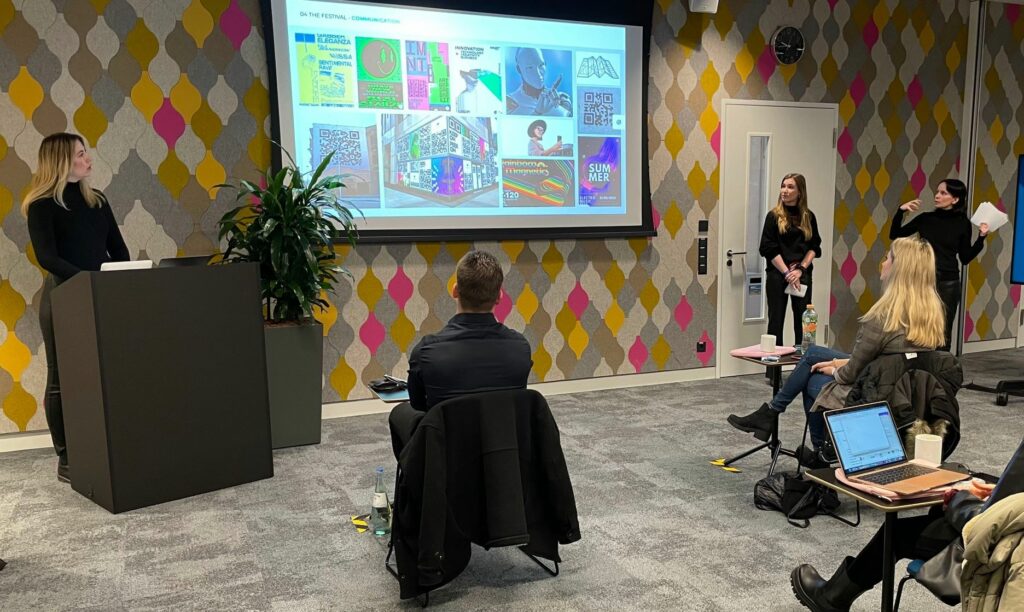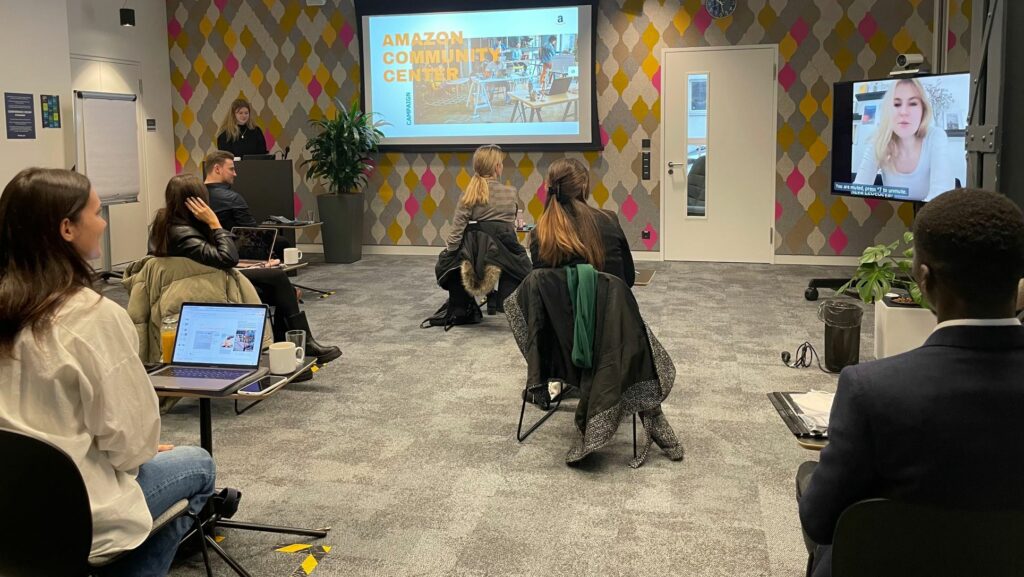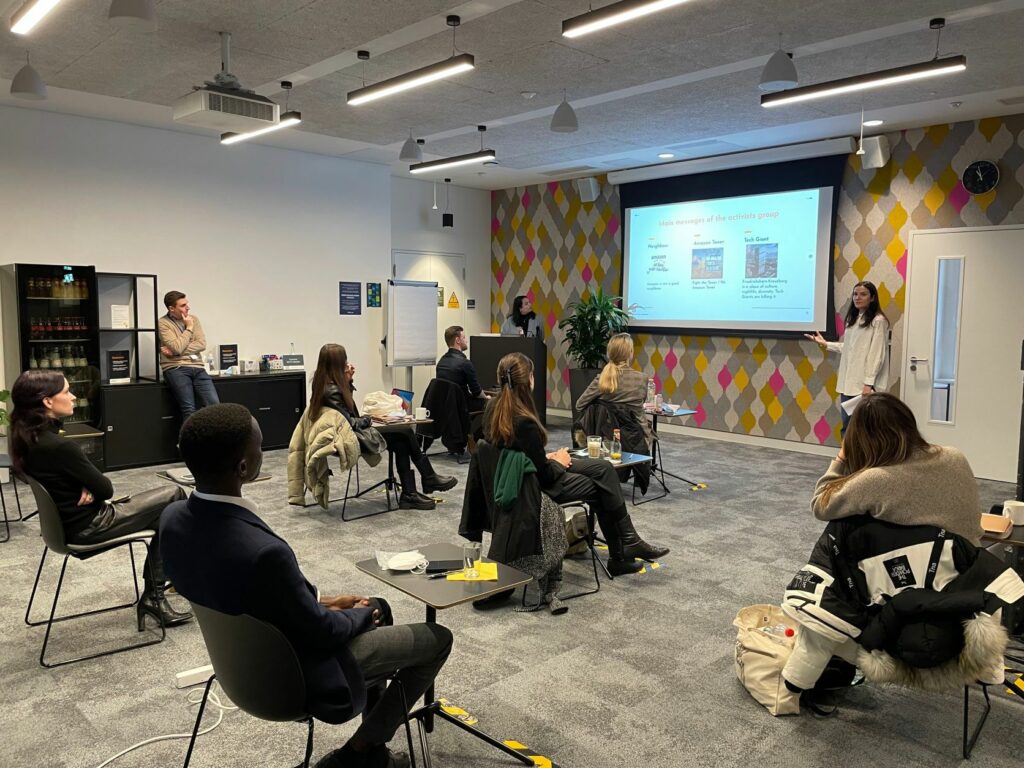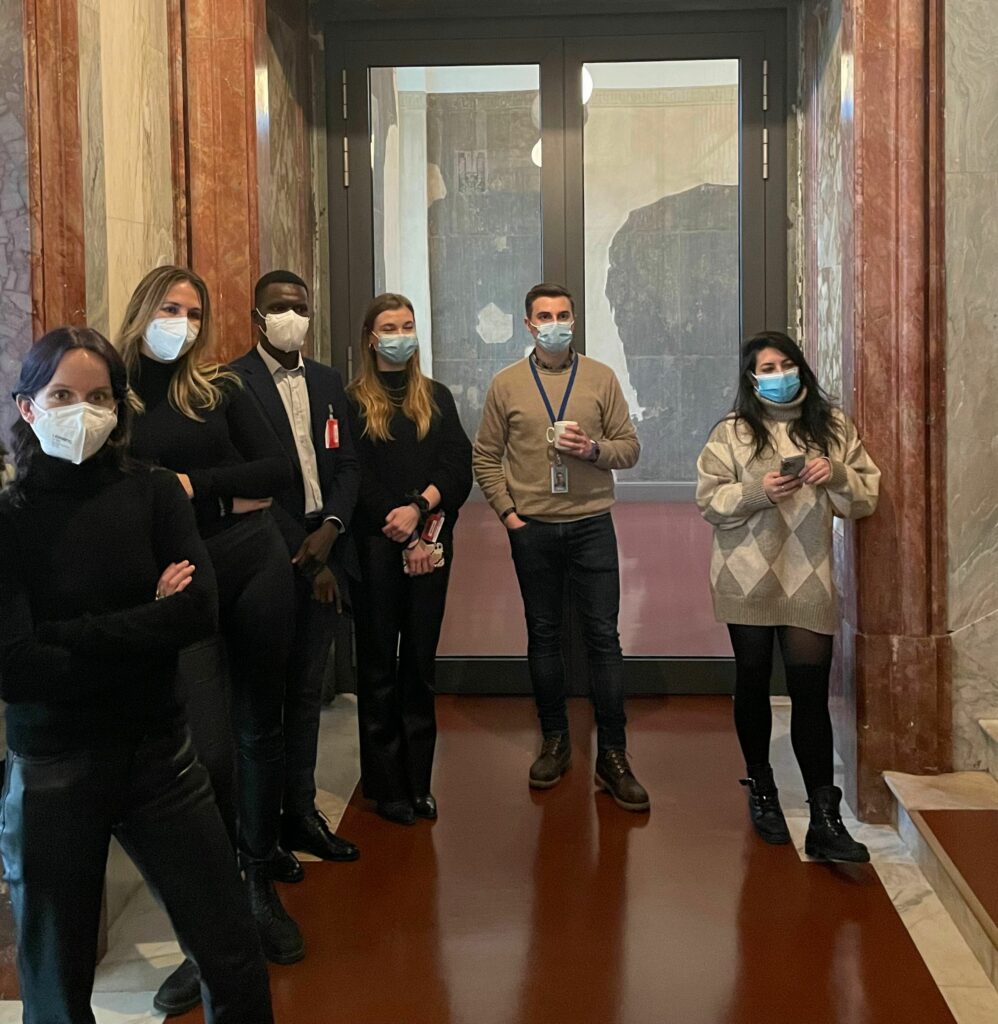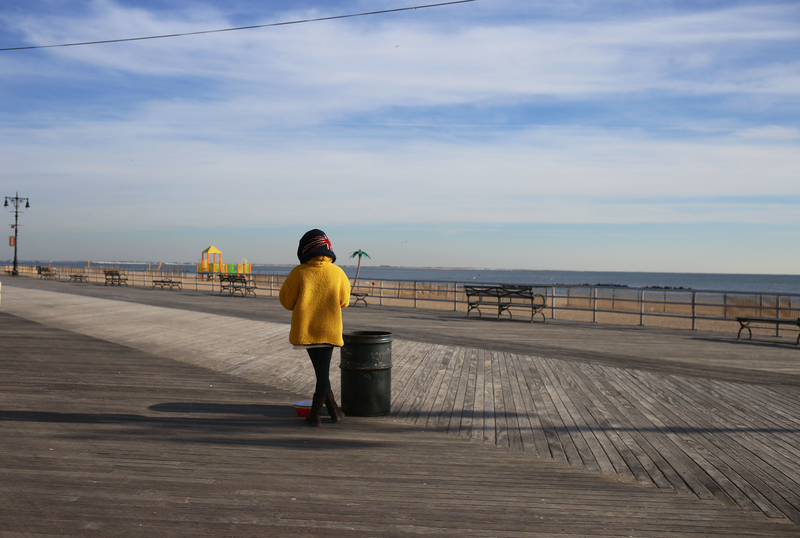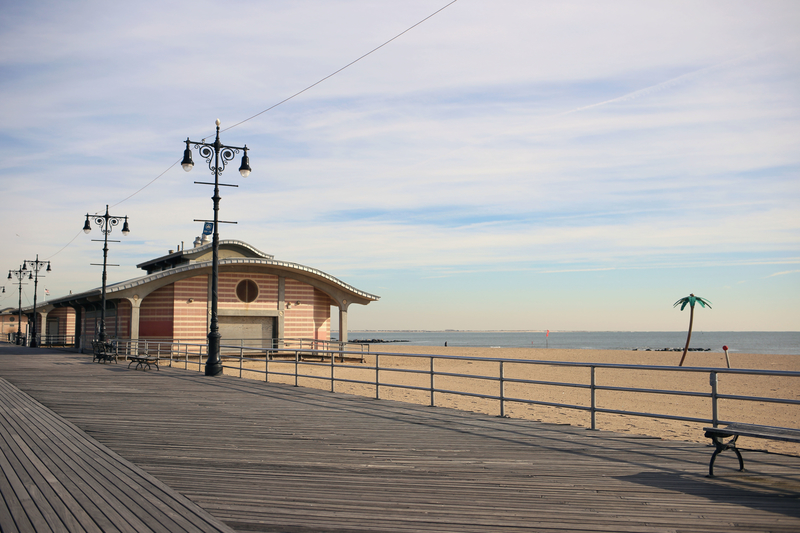The ‘traffic light’ coalition has promised to bring an end to the practice of subjecting same-sex families to an adoption process before the state will recognize both partners as the legal parents of children born into their relationships.
A profile feature by Michael Grubb
On a rainy December evening Emma and Jolanda sit across the dinner table from their daughter Irma. The bubbly two-year-old alternates between enjoying her apple slices and insisting on participating in the conversation, unphased by her underdeveloped sense of grammar and syntax. Her interjections command the attention of the room, her parents nodding affirmingly to the baby babble. She has lots to say and seemingly strongly held opinions – the coherent, adult conversation can only continue once she is satisfied that her point of view has been taken into consideration.
She is also a dancer, born with an innate appreciation for music, which is a constant feature of the household. An eclectic, tasteful collection of vinyl records occupies a portion of the long wall in their living room. Jolanda throws on an album of classic reggae, and Irma begins to dance almost immediately. A wiggle of her hips, sometimes a tap, or stomp of her feet, hands clapping to the beat. Her dancing is improvised and joyous, and it continues for the entirety of the song that flows through the speakers.
Emma and Jolanda met in 2011 while working at the same institute in Berlin. They are molecular biologists, and at the time were conducting basic research – Emma as a postdoctoral fellow, Jolanda as a PhD candidate. While searching for answers to the fundamental questions of biology, they also found each other.
Both have since continued to excel professionally. After defending her PhD, Jolanda spent some time in the administration of a prestigious research institution in Berlin, and for the past few years has been working with a software provider that helps laboratory scientists more efficiently manage their resources.
Emma has reached a level of success as a molecular biologist that very few achieve. Highly awarded and respected in her field, her list of publications in prestigious journals is extensive. The European Research Council now provides the funding that supports the laboratory she oversees.
It was after the pair purchased and moved into an apartment in Berlin that they began contemplating children. “Once we had a home, we felt that we were ready to start a family,” Emma said.
They decided she should be the first one to carry. “It was clear that Emma wanted to have the first baby, because she is older.”
In the summer of 2019 Emma and Jolanda married. In November of the same year Irma was born. Raising her over the last few years has been a joyous experience, accompanied by the crocodile tears and sleepless nights that all new parents endure. Their non-traditional family has also been treated with respect and acceptance in their community.
However, their most significant source of stress and insecurity has been the fact that until very recently, Jolanda was not Irma’s legal parent.
“We have a marriage for everyone, but it’s not complete,” Jolanda said. “No one that I’ve talked to – even the butcher in my parent’s village, or my 80-something year old aunt, no one has anything against our family. And yet nobody knows that we have to go through this. Everyone is happy with the two of us having a child, but nobody knows that we have to adopt.”
—-
When homosexual couples decide to start a family, the decision is always explicit. There are no accidents. For lesbian couples becoming pregnant often involves sperm donors and fertility clinics. Health insurers in Germany will cover initial fertility treatments for heterosexual couples, but not for women in same-sex relationships, meaning they must bear the full cost. For many it is prohibitively expensive.Depending on the length of treatment, it can cost anywhere between €10,000-20,000. The process can take years, and the decision to go about it is never taken lightly.
According to German law, when a child is born to a married lesbian couple, only the woman who gave birth to the child is considered the legal mother. The other woman in the marriage must adopt the child before the state will recognize her as its legal parent. This process is arduous and intrusive, and its outcome is subject to judgements of both the Child Welfare Office and the courts.
Heterosexual couples, whether married or not, are not subject to such institutional oversight. When a married woman gives birth to a child, the husband is automatically recognized as the legal parent, even if he is not the biological father. For unmarried couples, the woman can simply declare her partner the father. In both cases parental rights are granted with the stroke of a pen on the day the child is born.
From the day she was born, and for the following two years, Irma had only one legal parent.
“I was treated nicely by everyone at the hospital,” Jolanda said. She was allowed to be present for the birth. “But I am not mentioned in the birth certificate. I was basically nothing to her legally.”
Childbirth comes with obvious risks, and the laws governing the allocation of parental rights are meant to ensure that a child will be cared for by a second parent in the event of the mother’s death. In Germany, obligations of care and inheritance are predicated upon legally recognized parental relationships. Because parental rights are not allocated to the second partner in a same-sex relationship at the time of a child’s birth, those children come into the world without the legal security afforded to children born into heterosexual relationships.
This fact was a primary concern for Emma and Jolanda before and after Irma’s birth. Jolanda’s lack of legal status vis-à-vis her daughter restricted her ability to take full responsibility for her, at the pediatrician for example, or in other contexts where important decisions must be made on her behalf. If something had happened to Emma, if she were killed or incapacitated, Jolanda’s right to continue parenting Irma would not have been assured.
“A woman can die during delivery, and you don’t want a child to be orphaned right away, so you need a second parent,” Julia said. “This should apply to us as well. If Emma had died Irma would have been an orphan. But I’m there! I’m married to Emma! I went through the pregnancy with Emma, I’ve been in Irma’s life from day one. Where is the difference?”
Two German courts, as well as the new German government, would seem to agree.
Nodoption (a play on the words ‘no’ and ‘adoption’) is a non-profit legal advocacy organization that has helped same-sex families challenge the laws governing parental rights in German courts since 2018. They argue that the law fundamentally discriminates against same-sex couples, and endangers the children born into those relationships. Though most of their initial cases were lost on procedural grounds, they have succeeded in two instances in the past year.
In March 2021 both the Regional High Court in Celle, Lower Saxony, as well as the Superior Court of Berlin ruled in their favor.
The law states that only a “man” can be the “father” of a child, thus excluding the possibility of the second parent being a woman (or non-binary person). Both courts ruled that as such it discriminates against same-sex couples. The rulings have been bundled together and sent to Federal Constitutional Court in Karlsruhe, which will decide on the constitutionality of the law. When the case will be heard and decided upon remains to be seen – the process can take many years.
In a statement given after the ruling of the Superior Court in Berlin, Lucy Chebout, the lawyer who represented the plaintiffs in both cases, called it a historical moment and a clear call to action for the federal legislature. “Two high courts have stood on the side of same-sex families and are supporting them in their fight for equal rights. The legislature should seize the opportunity and finally institute reforms to the laws governing parental rights,” she said.
If one is to take the newly installed German government at their word, then they intend to do just that.
The “traffic light” coalition of Socialists, Greens, and Free Democrats included in their governing contract the statement that, “If a child is born into the marriage of two women, both are automatically the legal mothers of the child, as long as no other legal agreements have been made.”
Governing contracts are of course not the law of the land – they simply lay out the intentions of the coalition for the coming legislative period. The former “grand coalition” government of Christian Democrats and Socialists had similar language in the contract they signed in 2018. The effort to turn those promises into legislation never made it to a vote in the Bundestag.
—-
The adoption process involves two institutions: The Family Court, and the Child Welfare Office. The party in the marriage who did not birth the child must first petition the court, stating their intention to adopt (a document which in Germany must be produced by a notary), and the party who gave birth to the child must give consent for the adoption to the court (also via a notary).
The court will then ask the Child Welfare Office to make a “judgement” of their situation – it is this part of the process that, for Emma and Jolanda, felt the most intrusive. It means submitting to interviews, the purpose of which are to elucidate deficiencies in one’s character. It means allowing a stranger into your home so that they might scrutinize the setting in which you raise your child, and pry into your routines and methods of parenting.
They would not be subject to such scrutiny by the state if they were in a heterosexual marriage.
Their adoption process was complicated by two outside factors; the onset of the corona pandemic, and that nine months after Irma was born, they had to move cities. Emma was to start her own research laboratory in Cologne, a move that was in the works even before her pregnancy. The home visit was thus delayed, stretching the entire process out beyond the normal time parameters.
A man from the Child Welfare Office, similar in age to themselves, came to evaluate their home a few months after they moved to Cologne.
“I was nervous, obviously, because I felt like I was being tested. He is coming to judge – based on one visit, during lockdown, after we have moved and are not in our normal environment, wearing masks – if I am a good mother, or potential mother to my child, that I have raised since birth and who he doesn’t know. It feels so shitty.” Jolanda said.
“You think all kinds of things – should I have her in my arms? What if she doesn’t want to come to me and only wants to go to Emma because of, whatever, and how will he judge me because of it? These things are obviously totally unnecessary to think, but still you do this.”
The Child Welfare Office found them and their home to be suitable to raise their daughter, and in November 2021 the adoption became official.
This recognition of their family changed little for them in a practical sense. In an emotional sense, it represented the long-awaited end of a journey they felt they shouldn’t have had to be on in the first place.
“It has done something to me. I’ve loved Irma always, in ways you can’t express in words, and it hasn’t changed anything in terms of my relationship to her or Emma, but I feel better. I know now that the German state recognizes that legally I am her mother. It’s a big deal, a huge deal.”
The last 16 years of conservative led governance in Germany has meant stagnation in the march towards equality for sexual minorities; Angela Merkel’s government was not explicitly homophobic, but certainly wasn’t ready to expend political capital addressing the issues facing same-sex families. The new government under Olaf Scholz has made it clear they intend on making up for lost time. Whether reform of the laws governing the allocation of parental rights for lesbian couples comes of legislative initiative or is ordered by the highest court in the land remains to be seen.
“Let’s see how quickly they change the law,” Jolanda said. She is currently pregnant with their second child, a boy. The pace of reform will determine if they once again must ask permission to be recognized as a family.
